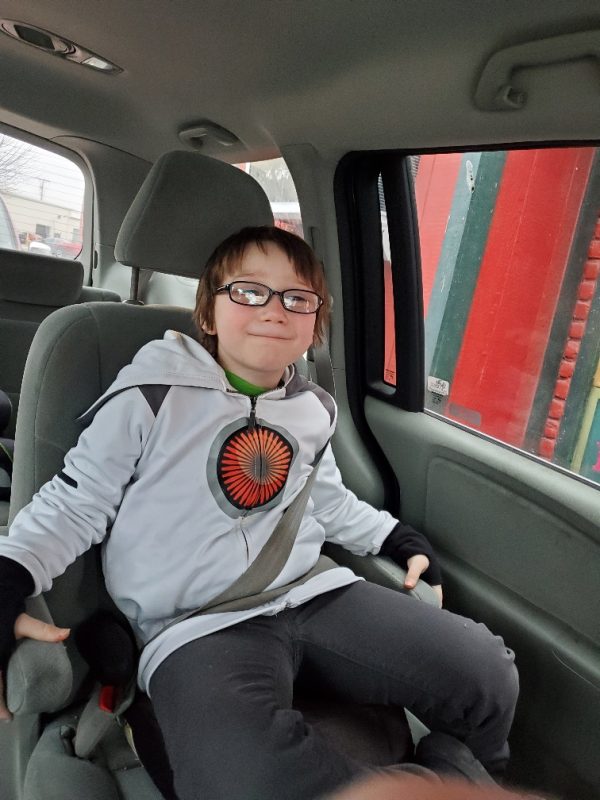
Hideki and his mother, Laurie, found their way through depression by connecting with others who understand their journey.
A serious illness, such as cancer, can be a risk factor for depression. It’s one of the most common mental health disorders and can develop at any age. Symptoms of depression include feeling hopeless or sad and a loss of interest in activities.
While it’s important to address that depression can feel like a dark cloud, there is a silver lining: research shows that while pediatric cancer can be very stressful, most patients themselves will not develop clinical depression. Low mood and occasional thoughts and feelings of sadness are normal during the cancer journey. However, if you or a loved one is experiencing symptoms of depression, getting support is an immediate priority. If symptoms seem exceptionally severe, longer lasting or affecting daily function, please read these as warning signs. A mental health professional can help families understand the context and severity of symptoms and find resources to meet patient and family needs.
Signs and symptoms of depression may include:
- Problems sleeping and fatigue
- Feeling down, sad or irritable much of the time
- Loss of interest or pleasure in hobbies or activities
- Crying more than usual
- Being easily annoyed or frustrated
- Feelings of hopelessness, worthlessness or guilt
- Change in eating habits or loss of appetite
- Withdrawal from friends and family
- Trouble concentrating and indecisiveness
- Restlessness or slowing of movements or speech
- Thoughts of death or suicide
If you or your child experience any of these symptoms for two or more weeks, contact your healthcare team. Cancer treatment and medication side effects can cause some of these symptoms and affect mental health during the cancer journey. A multidisciplinary care team is important to make sure that patients receive appropriate treatment for depression in the context of cancer care.
Coping with symptoms of depression: Tips for parents and caregivers
- Help children and teens talk about thoughts and emotions
- Encourage social support
- Identify triggers
- Encourage participation in activities and interests
- Use a variety of resources and strategies to help manage symptoms of depression
- Encourage healthy behaviors, including good nutrition, exercise and good sleep habits
- Seek help if depression symptoms worsen
Hideki is a 7 year-old boy who began his battle with leukemia in 2019. At that time he and his mother, Laurie, had to relocate from home for treatment. They were separated from his father and three siblings for months and the isolation was very depressing. Laurie started to notice small changes in Hideki. If he was ever alone in a room, he would become upset. He did not want his mom to leave his side for even a moment. Laurie says, “He had some trauma from the hospital experience and to this day still doesn’t like to be alone.”
They connected Hideki with a cancer support services program, and he started to receive letters and packages from other children who had gone through childhood cancer. He looked forward to checking for new letters, which had become a real source of support for him. Laurie said, “making friends with other parents and children who were going through similar treatments really helped us get out of our depression.”
Connection with others and seeing yourself in their story is invaluable. Laurie has additional advice for parents. Journal, track your feelings; “reflecting on them and seeing how far you’ve come is very helpful.” She also encourages families to “reach out to others if things get bad; the hospital social worker was a great source of support for us.”
The National Children’s Cancer Society has a Childhood Cancer Facebook Support Group for parents, guardians and adult survivors of childhood cancer that provides a supportive environment to connect and receive encouragement. NCCS also has a Mentorship Program for children ages 10-17 who have been diagnosed with cancer and would benefit from support and encouragement from a college-age childhood cancer survivor. CancerCare also has tools to find counseling and educational resources.
When a child is battling cancer, mental health often takes a back seat. Depression is a real illness that can impact medical outcomes and overall wellbeing. Reach out for help if you or your child are struggling with depression.

